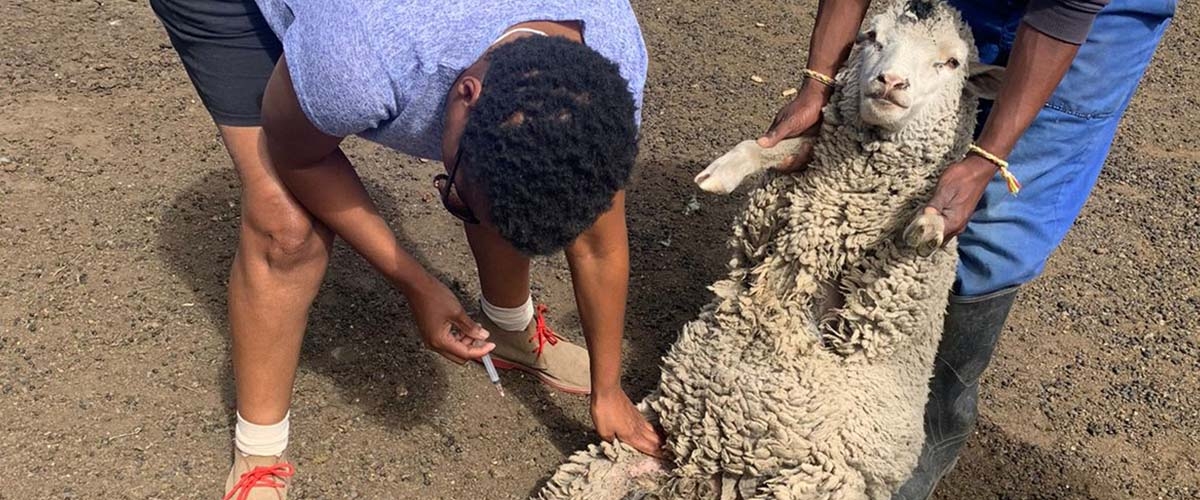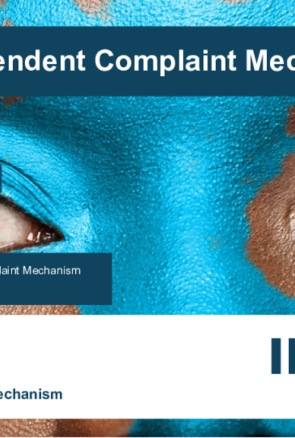
CCARDESA Herding for Health (H4H) Knowledge Management Project aims to significantly enhance sustainable livestock and rangeland management across the region. CCARDESA will empower farmers, herders, and local government officials with innovative land and livestock management approaches by developing and distributing targeted educational materials and conducting comprehensive training sessions. It will also include training on marketing, traceability, business management, quality assurance, compliance with standards, and newer techniques in herding and rangeland preservation.
Furthermore, CCARDESA Herding for Health (H4H) Knowledge Management Project will leverage digital platforms and media to broaden the reach of these initiatives, using community radio programs, documentaries, and a mobile app to disseminate crucial information on rangeland management and to facilitate knowledge exchange among stakeholders. This strategy addresses the immediate needs of local communities and fosters a regional network of knowledge sharing, which is essential for the long-term sustainability of rangeland resources. By integrating traditional knowledge with modern practices and promoting regional cooperation, CCARDESA's impact will extend beyond immediate project goals, contributing to the resilience and sustainability of agricultural practices across the SADC Region.
The CCARDESA Herding for Health (H4H) Knowledge Management Project on sustainable livestock and rangeland management is set to deliver significant impacts, including enhanced agricultural productivity and economic gains for local farmers and herders through the adoption of innovative land and livestock management practices. By equipping local communities with new skills and knowledge through extensive training and digital outreach, the project fosters resilience against environmental and economic challenges. The dissemination of best practices across the SADC region promotes a collaborative and standardized approach to agricultural development, influencing policies and contributing to ecological conservation. Ultimately, these efforts not only bolster the local economy but also ensure the sustainability of natural resources, enhancing the overall well-being and sustainability of the communities involved.
In addition, CCARDESA Herding for Health (H4H) Knowledge Management Project will lead to increased visibility and strengthened capacity in rangeland and knowledge management in the SADC Region. enhanced resilience of open land systems and agropastoral communities to desertification and climate change, biodiversity conservation, and improved soil health and carbon sequestration. The project outcome will be the introduction and adoption of community-led, market-oriented agropastoral land use systems that prevent soil and landscape degradation while fostering sustainable rural development.
Conservation International (CI)
Since 1987, Conservation International (CI) has helped support 1,200 protected areas across 77 countries, protecting more than 601 million hectares of land and sea. CI has offices in 30 countries and projects in more than 100 countries. From its five offices in Africa, CI and its partners are implementing projects in most Sub-Saharan African countries.
- Agriculture and rangeland management in the SADC region: about 30 years
- Natural Resource Management and biodiversity: about 30 years
- Climate Change adaptation and mitigation: about 20 years
(CI is very active in climate science, partnering with the Potsdam Institute for Climate Impact Research and being one of the founding partners together with Senckenberg, Frankfurt Zoologische Gesellschaft, and Goethe University of the Frankfurt Conservation Center (FCC). Among international NGOs, CI is a leading project developer in the voluntary carbon market.)
Implementing partner taking primary responsibility for work in Botswana, Madagascar, and South Africa
Peace Parks Foundation (PPF)
Peace Parks Foundation (PPF);was established in 1997 to facilitate the establishment of Transfrontier Conservation Areas (TFCAs) in Southern Africa. The Foundation’s strength is the ability to operate at multiple levels and provide support and solutions in the form of co-funding and technical expertise. PPF has an increasing portfolio of community development projects in Zambia focused on agriculture and sustainable natural resource management where the aim is to create resilience and ultimately have self-sustaining projects with local ownership. Examples include conservation agriculture, the establishment of agri-hubs for vegetable farmers and cooperatives for grain farmers, water augmentation /irrigation projects, and rangeland restoration via Herding for Health (H4H). PPF has an on-the-ground presence in Zambia, including a Memorandum of Understanding with the Simalaha Community Conservancy in Zambia, where the Growing Greener activities will take place. Our work is supported by state-of-the-art GIS expertise and integrated data and monitoring systems, which serve to validate our activities and demonstrate our realized impact.
Implementing partner taking primary responsibility for work in Zambia
The outcome will follow from four outputs:
Output I:
Innovative, tech-barrier-free, community-led agropastoral practices and nature-based solutions are adopted.
Output II:
People in targeted communities reap economic benefits from soil and landscape restoration interventions.
Output III:
Enabling regional and national policies for sustainable land use in open land ecosystems are established.
Output IV:
Capacity to scale up sustainable landscape management is enhanced.
Consortium Structure
The consortium will be led by the GIZ program manager in Botswana, who will coordinate the overall project and the Botswana activities. GIZ will lead program implementation together with the partners CI, PPF, and CCARDESA. CI and PPF take the technical lead on Outputs I and II. PPF is in Zambia, and CI is in the other three countries. GIZ will lead Output III and serve as a key liaison to the national and regional political partners. CCARDESA leads Output IV, working with the other partners on information sharing and dissemination to the SADC region. In each country, CI and PPF will subcontract as needed to local NGOs with an ongoing community-level presence that will continue after the project ends. In Botswana, these may be, e.g., Wild Entrust and/or CLAWS; in Madagascar, the Maison des Paysans; in South Africa, the farmer cooperatives in Steinkopf, Kamiesberg, Concordia, and other communities; and in Zambia, local communities and chiefdoms, following a community-led approach as in the Simalaha Community Conservancy. Those organizations may support the work with agropastoralists and value-chain stakeholders.
Political Partner Institutions
Ministry of Agricultural Development and Food Security (MoA), Botswana
Ministry of Agriculture and Livestock (MINAE), Madagascar
Department of Forestry, Fisheries, and Environment (DFFE), South Africa
Ministry of Green Economy and Environment (MGEE), Zambia
Project lead:
Mrs Bridget Kakuwa-Kasongamulilo bkakuwa@ccardesa.org






